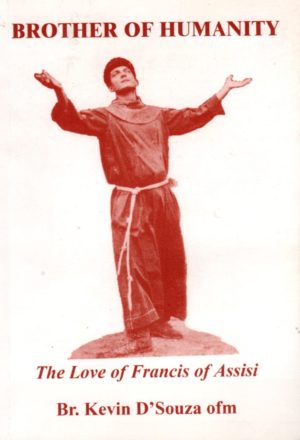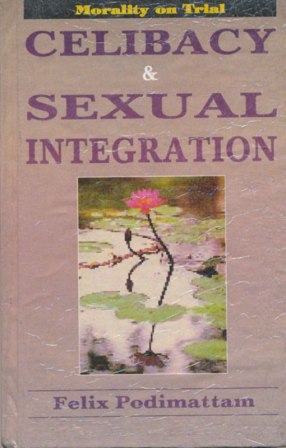Description
Let us know the Author Dr. Felix Podimattam OFM Cap.
Dr. Felix Podimattam is one of the best known Indian authors in the field of ethics and morality. He holds a Master’s degree in Political Science from the University of Mysore, a Licentiate degree in theology from Pontifical Gregorian University, Rome and a Doctoral degree in Moral Theology from the Alphonsian Academy, Rome. His doctoral thesis ‘The Relativity of Natural Law’ is acclaimed as exceptionally excellent. The thesis was guided by the eminent Moral Theologian, Bernard Haering, who influenced the renewal of Moral teachings of the Church during and after the Vatican II. Dr. Podimattam is resident professor at St. Francis Theological College, Kottayam and has been the founding member and first president of the Indian Moral Theologians Association. Most of his books, numbering over 120, are published by Media House, Delhi. Having gone through most of his books, let me highlight the most significant characteristics of his writings. First of all, he engages in a creative dialogue with other authors on every topic of discussion. Second, he tries to compare and integrate, as far as possible, the visions and views of other religions. Third, he holds a very positive attitude to life in general, especially to human body, sexuality, etc. Fourth, he is a keen observer of the socio-political and religious happenings in the society and responds to them immediately. His book on ‘Fast unto death’ during the upheaval of fisher people’s struggle in the eighties and his book on ‘Da Vinci Code’ a few years ago, where he gives a theological response to journalism with half-truths, are worth mentioning here. Fifth, he has taken keen interest on equal rights and dignity to women in the Church as well as in the society. In the context of widespread discrimination against women in the Church and society he published a six-volume work titled: ‘In praise of the woman’. Sixth, he holds on to the sacredness of life in all its forms and he has published books on topics like abortion, euthanasia, etc. Seventh, we find in his writings a harmonious blending of the traditional wisdom with its emphasis on fundamental Christian values as well as the findings of modern sciences like psychology, sociology, anthropology, etc, as well as the latest fruits of biblical exegesis.
The latest contribution of Dr. Podimattam, which may be acclaimed
The Making of a Masterpiece
The latest contribution of Dr. Podimattam, which may be acclaimed as his masterpiece, is: The Ten Commandments in the Law of Christ, a 20 volume work on the Decalogue. His vast knowledge on the subject gained through painstaking research, his teaching experience in various theological institutes stretching out over four decades and frank discussions with eminent thinkers have gone into this work. These books provide us with a re-interpretation of the commandments keeping in mind the genuine concerns of the people of God and at the same time remaining absolutely loyal to the teaching of Christ – “Christ did not come to abolish the law and the prophets, but to fulfil them”.
CONTENTS
INTRODUCTION
1. NATURE OF JUSTICE
1.1. Notion of Justice
1.1.1. Justice in the Bible
1.1.2. Justice in Early History
1.1.3. Justice in Later Tradition
1.1.4. Justice in St. Thomas
1.1.5. Justice in Rational Reflection
1.2. Division of Justice
1.2.1. Commutative Justice
1.2.2. Distributive Justice
1.2.3. Legal or Contributive Justice
1.2.4. Social Justice
1.3. Justice and Love
1.4. Justice in Civil Law
1.5. A New Theory of Justice
2.HUMAN RIGHTS
2.1. Nature of Human Rights
2.1.1. Human Rights in History
2.1.2. Human Rights in Traditional Natural Law Theory
2.1.3. Human Rights in the Magisterium
2.2.1.4. Human rights in liberation theology
2.1.5. Human Rights in Rational Analysis
2.2. Kinds of Human Rights
2.2.1. Subjective and Objective
2.2.2. Positive and Negative, Active and Passive
2.2.3. Legal and Moral
2.2.4. Various Human Rights
2.3. Moral Reflections on Human Rights
2.4. Pastoral Considerations on Human Rights
3. OWNERSHIP OF PROPERTY
3.1. Private Ownership and Communal Ownership
3.1.1. Notion of Ownership
3.1.2. Types of Ownership
3.1.3. Subject of Ownership.
3.1.4. Object of Ownership.
3.1.5. The Right of Ownership.
3.1.5.1. Teaching of the scriptures
3.1.5.3. Teaching of the fathers
3.1.5.4. Teaching of the theological tradition.
3.1.5.5. Teaching of present-day moral theology
3.1.5.6. Teaching of right reason
3.2. Acquisition of Ownership
3.2.1. Possession3.2.1.1. Definition of possession
3.2.1.2. Conditions for legitimate possession
3.2.1.3. Why possession is a valid title to ownership
3.2.1.4. Categories of possession
3.2.2. Accession
3.2.3. Prescription
3.2.4. Work
3.2.4.1. Christian evaluation of work
3.2.4.1.1. Work in Scripture
3.2.4.1.1.1. Work in the old testament
3.2.4.1.1.2. Work in the new testament
3.2.4.1.1.2.1. Work in the Teaching and Life of Jesus
3.2.4.1.1.2.2. Work in St. Paul
3.2.4.1.2. Work in Magisterial Teachings
3.2.4.1.3. Work in St. Thomas
5 2 4 1.4. Work in Theological Reflection
3 2 4.2. The Moral order of work
3 2.4.2.1, The Right to Work
3 2 4.2.1.1. The basis for the right to work
3 2.4.2.1.2. The duty to support the members in the procuring of suitable work
3.2.4.2.1.3. The Creation of opportunity for work is an outstanding social service.
3.2.4.2.1.4. The obligation to do one’s work well
3.2.4.2.2. The Duty to Work
3.2.4.2.3. The Right to Protection and Social Security.
3.2.4.2.5. The Right to Organize and to Strike
3.2.4.2.6. Partnership in Work:
3.2.4.3. Pastoral reflections on work
3.2.4.3.1. Facing the Ambivalences of Work
3.2.4.3.2. For a Renewed Spirituality of Work
3.2.5. Appropriation of Goods in Necessity; Occult Compensation
3.3. The Civil Law.
3.3.1. Ownership
3.3.2. Methods of acquiring ownership
3.3.2.1. By operation of law
3.3.2.2. By act of parties
3.3.2.3. Accession
3.3.2.4. Possession
3.3.2.5. Prescription
CONCLUSION
APPENDIX
BIBLIOGRAPH




Reviews
There are no reviews yet.